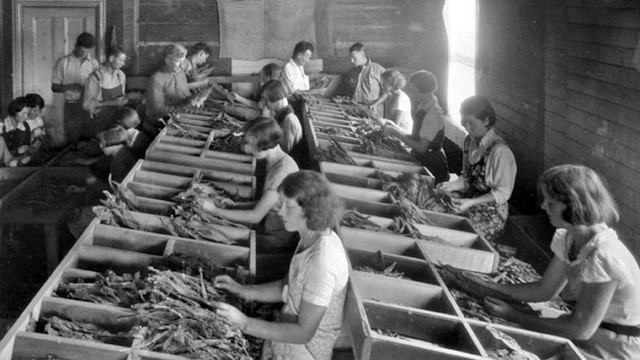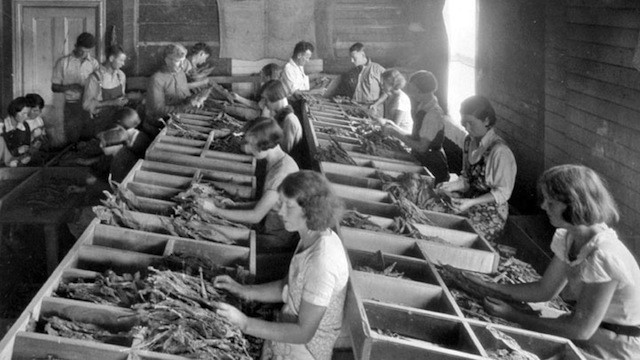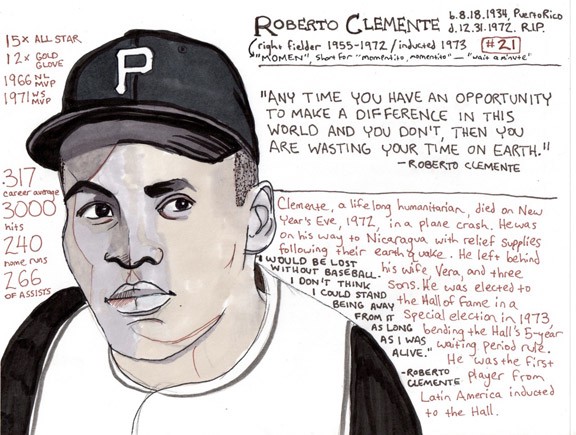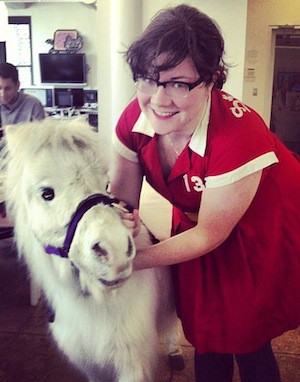Internet Work and Invisible Labor: An Interview With Summer Anne Burton
by Anne Helen Petersen


This interview series aims to make the “invisible labor” of web production visible. Over the next few months, I’ll be talking with a wide variety of content producers, exploring the dynamics of their own form of web production, how they mix that production with their “real” lives, and the various forms of gratification they receive from the work that they do. In short: how do you do what you do, and why do you do it? Talking about the realities of labor isn’t narcissistic. It’s political, it’s progressive, it’s feminist. It’s also totally fascinating.
Feel free to pose additional questions in the comments.
Summer Anne Burton spends her days (and many nights) as a managing editorial director at Buzzfeed, specializing in cats, books, and love for Texas. Her side gig is drawing pictures for Every Hall of Famer, plus she has a great Tumblr and is a beautiful writer.
Let’s go back in time a bit. You were hustling several jobs back in Austin and drawing Every Hall of Famer before you started working for Buzzfeed. Two questions: how did you get the idea for Every Hall of Famer, and how did you manage your time to make it a reality?
It was pretty random, I really like drawing and baseball, and I was trying to get more deeply immersed in both. One day I found myself sketching the players inside an old Astros program my grandmother had given me, and a few weeks later I was explaining to my boyfriend that I wanted to try drawing every member of the Hall of Fame. It was basically a personal project in my head at the time, I didn’t even know if I was going to put it online. The idea was just one of dozens of little art projects and resolutions I’ve made over the years, the only difference being that other people started to care about this one. As for finding the time, it seemed easy back then and is actually much harder now. When I was waitressing and working in retail, writing and drawing were all I ever wanted to do when I got off work — I think it was me reminding myself that I was still a creative, interesting person despite the way that those jobs made me feel replaceable and relegated.

I remember when your drawings really started getting some broad attention — ESPN, Deadspin, etc. Did that change the production dynamics (or the way you viewed the project) at all?
I’m extremely grateful and humbled by the attention. I’m also self-aware: If it hadn’t picked up an audience, I fear I might have abandoned it at some point. I think I’ve gone through a few different phases with the project; early on it was a personal goal and not a big part of my life at all, when it got attention I briefly thought of it as my lottery ticket — dreaming of book deals and big art openings and scheming about whether I could now afford to quit my day job. Now, it just seems like a part of me — not the biggest part, but a really important one. It’s hard to remember not being the lady who draws baseball players. I think I’ll be sad when I’m caught up.
Did Every Hall of Famer have anything to do with getting your job at Buzzfeed? Or, let’s phrase this differently, how did you end up with a job at Buzzfeed?
Good question! Now that I interview and hire people, I am always hooked when they’ve shown that they can have creative ideas, execute them, and then have them seen by a lot of other people (that last part being the hardest and rarest quality, and the one that most people misunderstand). I had also done a wee bit of freelancing — I was writing about vintage pop music for The Hairpin, and writing about baseball for Fangraphs. I think there was a variety of stuff I was doing that spoke to the fact that I was a real generalist, and that’s what they needed for a “weekend editor.”
After my first interview, I did a “trial weekend” of community posts before they made the final decision to hire me over some other candidates. In my trial weekend, the stuff I tried ranged from the cast of Mad Men as adoptable dogs (big hit at the time!) to a comparison of the lyrics of Kanye West to the lyrics of Garth Brooks (shockingly, a huge flop). I think the guys who were hiring saw that weekend that I had an innate understanding of what BuzzFeed was.
I do think Every Hall of Famer has a lot to do with why I applied for the job. Finding success with that project was addictive and I suddenly felt like I knew — for the first time, really — what my dream job would look like and it was what BuzzFeed was advertising on their jobs board. I had realized, really for the first time, that it was actually possible for me to do the thing I’d always done for fun: writing, finding neat things on the internet, making lists, and sharing small joys that made my friends happy. The idea of working at a place where that would be my job felt like being a kid who finds out that “video game tester” is a real job.
Let’s go nitty-gritty: when you first starting working full-time, what did you day look like? What’s more time-consuming than most people imagine?
My job at BuzzFeed when I started was “Weekend Editor.” I started in April of 2012, and I was the only person working regularly on Saturdays and Sundays. My job was a mix of creating new content — aggregation of any videos or pictures that were “going viral” on the web that day, original lists and writing, as well as the occasional breaking news item — along with managing the front page and sorting through community contributions to surface interesting things our users made.
I spent about 2–3 hours a day on the community moderation, which was always interesting and weird. We had (and still have!) a lot of Russian users who would post, like, old memes and dashboard cam videos. I promoted the good stuff, tweaked headlines and formatting, stuff like that. It was like sorting through sand for gold flakes. The rest of the time I spent making posts. I kept Google Reader (R.I.P.) open at all times, watched Twitter, saw what was going on elsewhere on the internet and reacted to it, as well as relying on my long list of “evergreen” ideas. I never ran out of ideas for things to post and I still don’t.
The hard part was figuring out the right balance between reading/ keeping up vs. actually getting deep into a post. It’s hard to really write anything substantive when TweetDeck is refreshing on a second monitor. One of my colleagues recently did a post called “13 Reasons You Never Get Anything Done” that’s just animated GIFs of notifications from Twitter, Tumblr, Gmail, etc. I think most people struggle with that, but at BuzzFeed the whole point is knowing what gets shared and why, so it’s especially hard to figure out how to tune the dials of social interactions versus “real” work.
And what does your day look like now?
Oh man, so different than it did then! Since I started at BuzzFeed I went from working at home in Texas to working from our New York office, and BuzzFeed has gone from 60-something employees to well over 300. I’ve also handed off weekends and taken on a much broader but also harder to articulate position as Managing Editorial Director. On a day-to-day basis, my day revolves around a group of permanent tabs and windows. In handy list form (I do love a good list):
1. Gmail:. Every day is one long journey to inbox zero. I receive hundreds of emails a day from various BuzzFeed listservs and individuals. I sometimes threaten to close my email in order to work on something, but I have too much FOMO anxiety to actually do it.
2. Google Calendar: I use it so much that I just gave up on having a separate personal calendar and started scheduling my yoga classes and bird walks directly onto it as well.
3. GChat and HipChat, our group chat client: My colleagues send ideas, drafts, and posts through GChat or into one of our HipChat rooms. It can be a tough thing to balance because I always want to give people great feedback on their stuff, but the internet moves fast and to do that always means dropping something else I was working on immediately.
4. A post draft: Although it’s not my first priority anymore, I’m encouraged to post as much as I want and I love doing it. I end up doing a lot of my own work at night and on the weekends, because I find it hard to focus on them while multitasking.
5. Our real-time traffic report: I do spend a lot of time staring at traffic and looking for trends. I also just like to know when something on the site is blowing up, so that I can congratulate the author and try to learn things from our successes.
6. Twitter, Facebook, Tumblr, Pinterest, and Feedly: I certainly think of social media as part of my job, but this has become the most optional aspect of my day. It can be useful for surfacing news, but as I mentioned before it can also be a huge distraction. It’s easy to get pulled into a debate or something on Twitter and then emerge half an hour later with nothing to show for your time, so I choose to minimize it a lot.
I also talk to people in person! I’ve gotten a lot better about that over the 14 months or so that I’ve been in the NYC office. There are a lot of things that are easier to explain if you walk over to someone’s desk and point it out to them.

Buzzfeed really hinges on savvy social media — how do you shape your own social media presence accordingly? (I’ve noticed, for example, that Buzzfeed links posts to the author’s Facebook page, so thousands of people can “follow” authors. We’re used to that with Twitter, but Facebook is another thing entirely.)
This part of the job has come naturally for me because I’ve been an online oversharer since I started posting poems on a personal website in 1998. I’ve never seen any of my social media activity as particularly private, and I’ve always gotten a kick out of the approval of strangers. In other words, I think I’d be a really good famous person.
My biggest social media issue lately is remembering that other people might be somewhat less interested in BuzzFeed than I am. I’ve been forcing myself to be pickier with sharing “stuff we did that I love.” It’s hard because I’m so genuinely proud of our work, but I know it seems inauthentic when someone is only interested in promoting the place they work.
I’ve encountered a lot of people who think Buzzfeed is just lists of cute cats, and while there are cats, it’s also doing some really compelling and expansive stuff — and have figured out how to fund international correspondents and longform journalism when other publications continue to slash staff. How do you deal with the assumptions that come with working at Buzzfeed?
What other media organizations who have faced similar critiques do is shrug off the lists and cats as something cheap they do in order to pay for the real journalists, who “don’t have to worry about traffic.” That’s not BuzzFeed’s model; we want the best cat list makers in the world and the best foreign correspondents, and we want all of them to think about why people respond to things and share them. For me specifically, most of my work is with those “cat list” makers — they actually do a variety of creative stuff, but they aren’t all reporters or even writers in a traditional sense. It’s difficult to me to see that team dismissed in both brutal takedowns and in articles celebrating that BuzzFeed is now more than just “stupid [insert cat joke here]”. I think our range of great work and our investment in journalism and creativity really speaks for itself, and I think it’s sad that some people are so self-serious that they don’t allow themselves to experience the joy of a really cute puppy photo or some juicy celebrity gossip.
So, my method for dealing is to channel Miley (“forget the haters, cause somebody loves you”) and Beyonce (“my daddy taught me to love my haters”) and Chamillionaire (“I want to show all of my haters love”).
That said, my feelings get hurt a lot.
In our last interview in this series, Linda Holmes spoke really eloquently about the difficulties of working in pop culture: you love your work, but your work is also what you love. Do you find the same principle in your own attempt at “life/work balance”?
To be frank, life/work balance is pretty much out the window for me. I do make time for things — cooking dinner most nights, watching movies with my boyfriend, and fairly regularly visiting Austin to see my parents and friends. Still, everything I do is colored by my job. I think about work all the time. Even my relationships are BuzzFeedified: my boyfriend, who hates the internet, reads BuzzFeed every night on his iPad and talks to me about it, and my dad has taken to emailing me entire BuzzFeed articles with his annotations throughout. And since I moved to NYC for my job, most of my friends here are my coworkers and all we ever talk about is work. I also find it much harder to devote energy to creative projects of my own or draw baseball players. Using so much of my creative energy at work makes using it at home feel like work, so instead I watch a lot of Food Network while reading email on my phone.
Apart from getting paid to look at cute stuff, what makes all the digital and behind-the-scenes labor worthwhile? Why, in other words, do you do what you do?
Sharing my joy and enthusiasm with as many people as possible has been my favorite thing to do since I was 12 and posting on local BBS messageboards about They Might Be Giants. Getting to do it for a living is something I never thought was possible until it was happening, and on a huge scale. It sounds so cheesy, but when I got to BuzzFeed, I was like “oh, finally, this is what I’m good at.” And it turns out that being really, really good at my job is the best feeling I’ve ever had in regards to work.
Previously: An Interview With Danielle Henderson
Photo via queenslandstatearchives/flickr.
Anne Helen Petersen is a Doctor of Celebrity Gossip. No, really. You can find evidence (and other writings) here, and you can read the Scandals of Classic Hollywood series here.